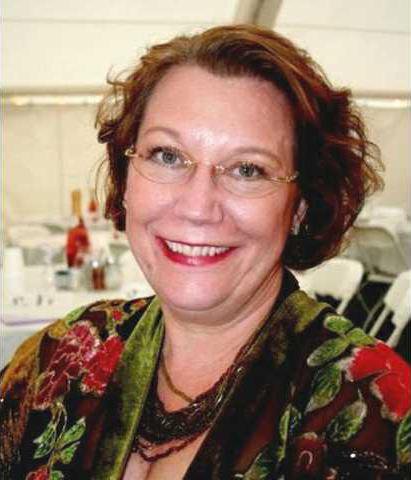“No shrewder piece of political humbuggery and downright fraud has ever been placed upon the statute books.It’s supposed to be legislation for the people. In fact it is legislation for the power oligarchy.” This statement was made by Mayor of Milwaukee Daniel Hoan in the early 20th century regarding the conversion of public utilities toregulated private entities.
Today we are at another historical turning point. The electric industry is poised to transform, and it is time to replace this “humbuggery” with transparency and integrity.
Vested interests are fighting for the survival of a highly-profitable, centralized business model, which benefits with increases in consumption and infrastructure. Their key tactics –new rate structures and transmission expansion.
We’re told new rate structures were approved to be fair. In reality, they will greatly increase costs to residences and small businesses, and discourage energy efficiency and local renewables.
And, we’re told more transmission is needed to increase access to out-of-state wind power. But, we don’t need more lines to integrate more renewables. Instead, transmitting wind from fossil-fuel-dominant locations like the Dakotas ensures that fossil fuels will continue to dominate the energy mix.
We’re also told “…85 percent of Badger Coulee’s estimated price tag ($540-$580 million) will be picked up by customers outside of Wisconsin.” While technically true, this understates costs Wisconsin could bear by $4.9 billion.
“Pricetag” or project costs do not include financing. Badger-Coulee is but one of 17 shared-cost transmission projects planned with a Wisconsin share of $873 million. Adding financing over 40 years and other charges, total cost to Wisconsin customers would be about $4.2 billion. With the CapX2020, Bay Lake and Cardinal Hickory Creek lines included, our costs for planned transmission expansion would be over $5 billion.
While Wisconsin citizens and businesses would pay, only utilities are guaranteed a return and cost recovery. And the greater the investment, the more utilities profit.
Financial News Network reported ITC Holdings, the largest for-profit US transmission builder, had the highest 2010 operating margin in the electric industry (51.7%). Dividing ATC’s 2010 operating income by its revenue, ATC’s was higher (54.9%). Comparing this to the US business average of 17% average shows why utilities might rush to build transmission, and why Xcel and ATC waged a war over Badger Coulee ownership.
Badger Coulee also isn’t about “keeping the lights on” or saving us money.
Demand is down. Expert witnesses for Citizens Energy Task Force and Save Our Unique Lands (SOUL), along with the Public Service Commission of Wisconsin (PSC), concluded that applicant utilities demand data was overstated. Without the inflated demand the “potential” savings claimed by utilities don’t exist.
Energy engineer Bill Powers demonstrated load management as the most cost-effective resource to offset peak demand. Compared to wind, solar proved better matched and more economical in addressing summer peak demand, and energy efficiency more advantageous than Badger Coulee in reducing costs and carbon.
Indeed, the six scenarios considered by MISO all assume a 3% annual rate increase. Five would increase emission in Wisconsin an average of 2% year. Only one reduces emissions, by relying heavily on increased energy efficiency, local solar, and demand response. But these measures threaten the centralized, consumption-oriented industry.
Focus on Energy funding for in-state, job creating renewables is a mere $450,000 to help make energy use sustainable. Yet we are being asked to sacrifice our dollars and state-wide lands to increase dependency, debt and waste. This is not forward thinking.
Special interest groups have inundated Wisconsin and federal energy policies. This helps to explain why regulators are asking us to support rate structures and transmission expansion that protect fossil fuels, centralized generation and stock-market-like trading on the wholesale energy market.
The influence is non-partisan.
Wisconsin is arguably the poster-child-state for corporate policy bill-mill ALEC which, along with the Koch brothers, is leading the charge against local energy. PSC Chair Phil Montgomery, a former ALEC legislator of the year, sponsored a bill enabling eminent domain taking of public lands for transmission and reportedly took the maximum possible Koch brothers’ donations in 2006, 2008 and 2010. Xcel Energy was a long-time funder of ALEC, served as ALEC’s Wisconsin corporate co-chair and includes U.S. Rep. Ron Kind (D-Wis.) among its top five political beneficiaries.
Willingness to support the public’s right to ask hard questions and demand that ratepayer priorities drive Wisconsin energy policy also crosses party lines. Sens. Jennifer Shilling (D-La Crosse) and Dale Schultz (R-Richland Center), are among a dozen state legislators supporting citizen attempts to put the public back in the Wisconsin Public Service Commission. Former assemblyman Mark Honadel (R-Milwaukee) spoke for prudence instead of recklessness regarding new rate structures.
Wisconsin has the legal right to assess need and deny approval if in-state ratepayer benefits are not proportionate to costs or if other energy policies or alternatives better serve state ratepayers. Statutes give priority to energy conservation, efficiency, and renewable generation. If the PSC finds these or a combination of these measures provide a cost effective, technically feasible alternative, then the PSC must reject all of or part of the project.
Transmission planning expert Peter Lanzalotta testified, “Given the slow and/or negative growth conditions, and the rising interest in distributed solar and accelerated energy efficiency … a wise investor would probably pause at least a few years to see which trends truly develop.”
It is time Wisconsin rejects a transmission line and becomes that wise investor.
Severson, a Sparta resident, is a member of Save Our Unique Lands (SOUL) and the Citizens Energy Task Force.



